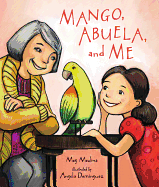 At the School Library Journal Day of Dialog on Wednesday, May 27, held at New York City's Fashion Institute of Technology, Caldecott Medalist Brian Selznick delivered the opening keynote.
At the School Library Journal Day of Dialog on Wednesday, May 27, held at New York City's Fashion Institute of Technology, Caldecott Medalist Brian Selznick delivered the opening keynote.
The Invention of Hugo Cabret combined Selznick's love of cinema and books, and he said he "rethought it again" with his forthcoming book The Marvels (Sept., Scholastic). For Selznick, the plot usually begins with a specific image. With Hugo, it was automatons. For Wonderstruck, it was the invention of sound film in 1927, "hailed as a triumph, but a tragedy to the deaf community," Selznick said. In The Marvels, the central image is the Dennis Seaver House in London, which Selznick visited a number of times. The story took Selznick three years to write. In the book, a visual narrative unfolds over the first 400 pages, in the year 1756; the next 200 pages take place 90 years later, entirely in text.
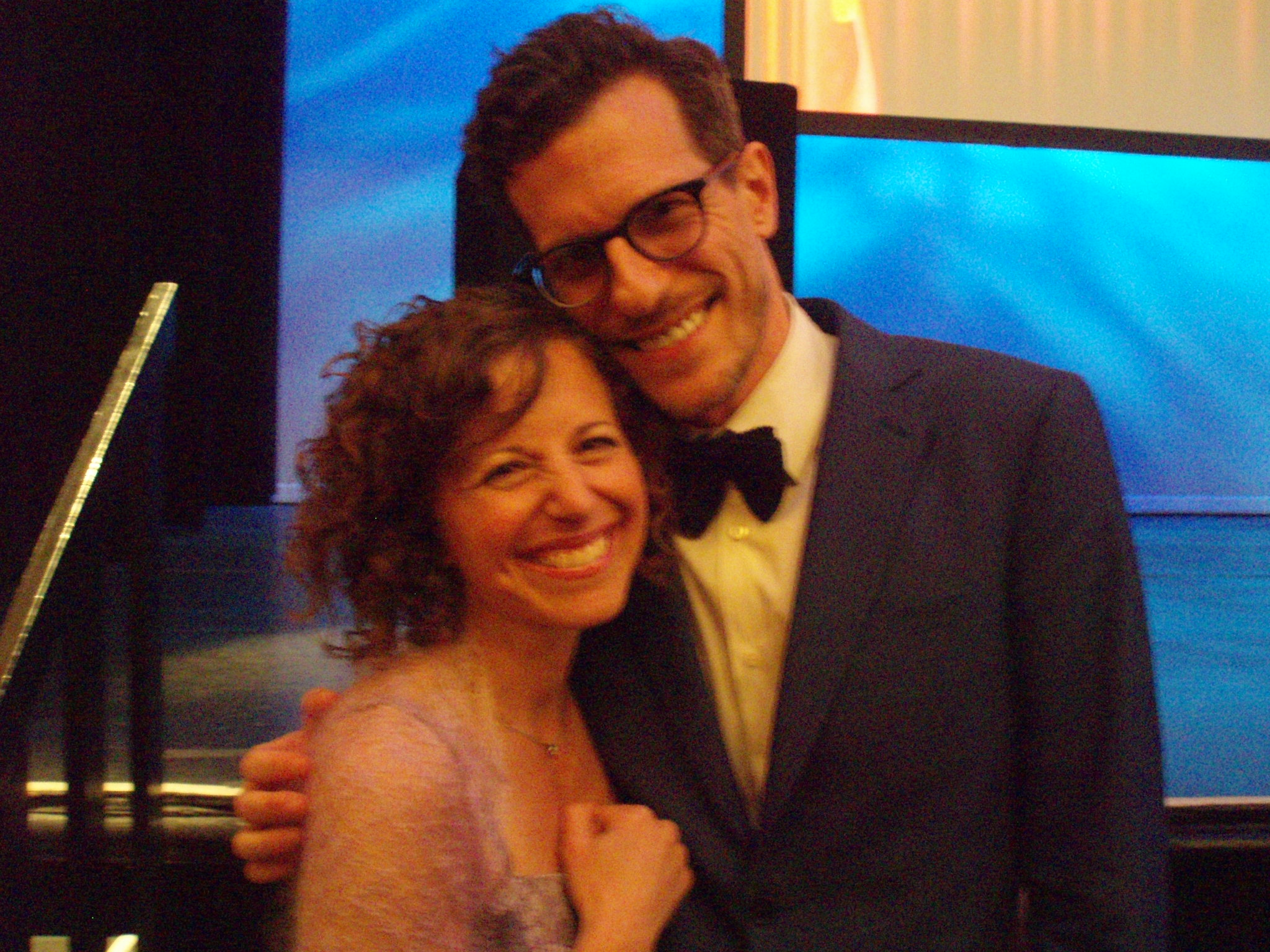 |
| Brian Selznick (r.) with editor Tracy Mack at the kickoff for The Marvels (Scholastic). |
Selznick noted that Maurice Sendak had described his books Where the Wild Things Are, In the Night Kitchen and Outside Over There as a trilogy Selznick similarly thinks of The Invention of Hugo Cabret, Wonderstruck and The Marvels as his trilogy.
Next, five authors engaged in a discussion moderated by Cambridge (Mass.) Public Library's Julie Roach about describing the natural world and raising awareness about how to protect it. For Louis Sachar (Fuzzy Mud, Random House), "a sense of optimism" attracts him to a project, and for April Pulley Sayre (Raindrops Roll, Beach Lane/S&S) "a sense of wonder" pulls her in. Wendell Minor (Trapped!: A Whale's Rescue by Robert Burleigh, Charlesbridge) believes that "children are inherently positive about the world they've inherited." As Jean Craighead George, his frequent collaborator, did for Minor, he hopes to "open [their] eyes to the complexity of the environment."
Anita Silvey (Untamed: The Wild Life of Jane Goodall, National Geographic) described what it's like to embark on a nonfiction project: "You believe you know something--that leads you to delve into a subject. Then you realize you know nothing. Then you do research and know too much to put it in a book for children." Paul Fleischman (Eyes Wide Open, Candlewick) said he began as a writer of picture books, which was "excellent training." He added, "I write novels the same way. Every word counts. With nonfiction, it didn't work. I had to unpack the information." Fleishman evoked Eudora Welty in this context: "Each book teaches you how to write it, but not the next one."
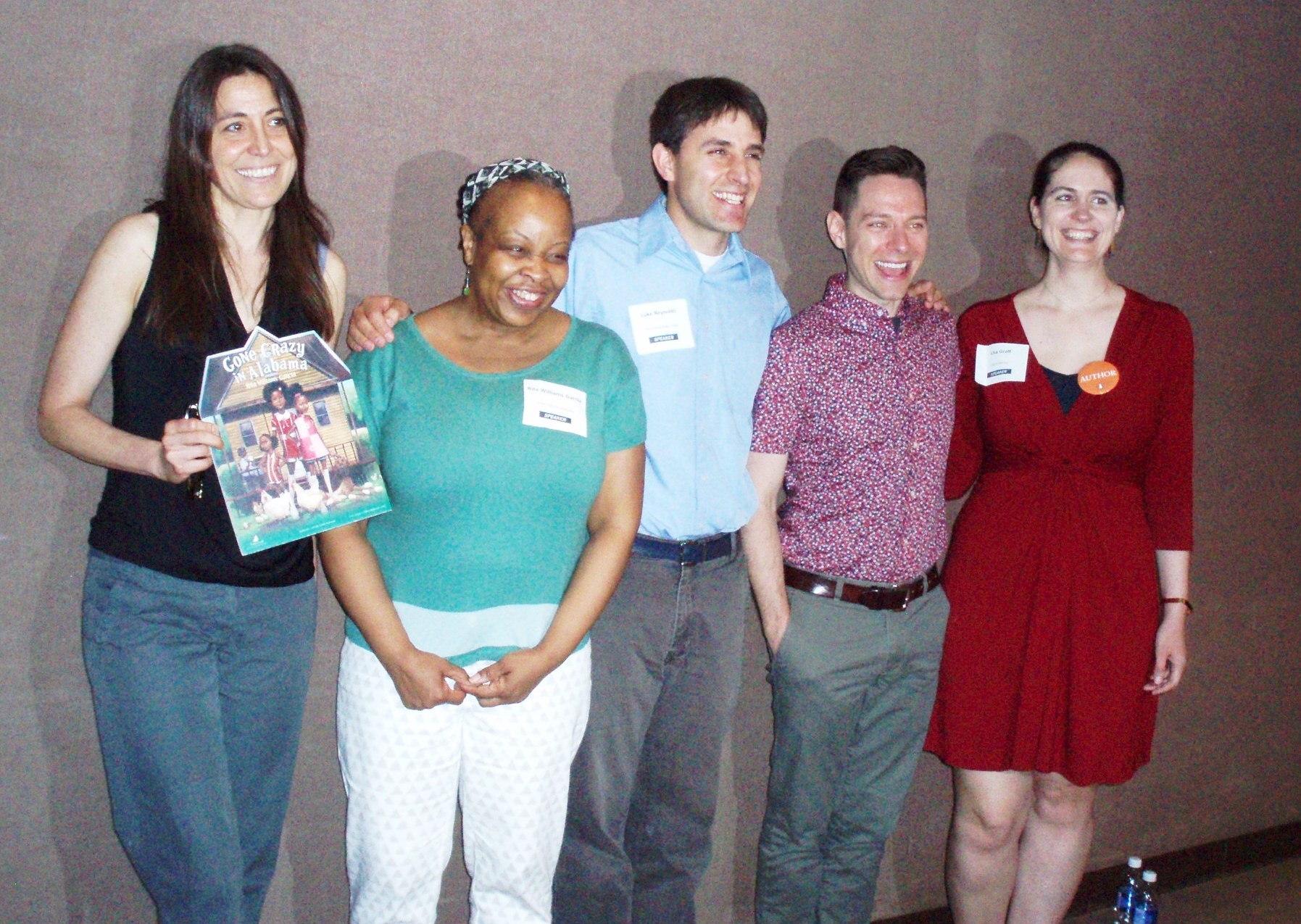 |
| "Middle School Confidential" panelists (l-r.): Rebecca Stead, Rita Williams-Garcia, Luke Reynolds, Tim Federle and Lisa Graff. |
Little Red School House's Stacy Dillon moderated a panel called "Middle School Confidential" with Tim Federle (Five, Six, Seven, Nate!, S&S), Lisa Graff (Lost in the Sun, Penguin), Luke Reynolds (The Looney Experiment, Blink), Rebecca Stead (Goodbye Stranger, Wendy Lamb/Random House), and Rita Williams-Garcia (Gone Crazy in Alabama, HarperCollins). Asked by Roach to confess a middle-school secret, Reynolds said he shoplifted as a kid, and confided this to his students. "Can you teach us?" they asked. Reynolds told the story of his older brother discovering his secret and saying, "You're meant for so much more than this." Federle, an actor and choreographer in addition to being an author, also pointed out the redeeming experiences post–middle school when he said, "Everything that got me picked on in middle school is what gets me paid now."
Stead described the middle school years this way: "When you cross a line into a new kind of awareness, there's no going back. We change and leave versions of ourselves behind us. It's like a series of deaths." Williams-Garcia told Stead she was glad she'd brought up death. "The death of girlhood is a plague in the black community," the author said. She cited an example of watching a four-year-old feed her baby sibling mashed potatoes in a KFC. "They know no silliness, no giddiness," said Williams-Garcia. "I'm always in some way talking about the death of childhood."
In her luncheon keynote speech, A.S. King (I Crawl Through It, Little, Brown) claimed, "Woman is Mother Theresa and Kim Kardashian." She showed her portfolio from her senior year in college, which calls to mind Cindy Sherman's work. "All of these women live inside me," King said. She had an awakening when she read in George Orwell's Animal Farm: "All animals are equal, but some animals are more equal than others." King spoke of feminism as inclusion, and that includes men. "We've moved from Archie Bunker as racist dolt to Raymond Barone as doofus," she said. How does that further feminism? King closed, "All eyes are on us to be the change we want to see in the world."
Angela Carstensen from the Convent of the Sacred Heart School in Manhattan moderated a panel with A.S. King, as well as Moïra Fowley-Doyle (The Accident Season, Penguin), Patrick Ness (The Rest of Us Just Live Here, HarperCollins), Daniel José Older (Shadowshaper, Scholastic) and Allan Stratton (The Dogs, Sourcebooks) on "Magical Thinking in the Real World."
Ness believes that because every book is a world made of words, "There's no such thing as a realistic book. All books are magic. All you have to do is establish a world where these things could actually happen." Older said he wanted to explore the reformation of the ghost story: "We're one of the only cultures that does not have a positive view of the dead." Fowley-Doyle wanted to delve into "family secrets and complicated first love." As an actor, Stratton said, "I imagine myself as the character." King noted that the need to escape is a theme in all of her books.
Jesse Karp of the Little Red School House in New York City moderated a panel of graphic novelists who focus on nonfiction: Don Brown (Drowned City: Hurricane Katrina & New Orleans, Houghton Mifflin Harcourt), Claudia Dávila (Child Soldier: When Boys and Girls Are Used in War, Kids Can Press), Nathan Hale (The Underground Abductor, Abrams), Maggie Thrash (Honor Girl, Candlewick) and Maris Wicks (Human Body Theater, First Second).
Karp kicked off the discussion by positing that there are four towering works in the field of nonfiction graphic novels: Maus, Persepolis, Fun Home and Understanding Comics. Brown agreed, and added, "Maus settled forever whether graphic novels could handle historical truth." Hale asked the audience to imagine that all sports were dying out, and all that was left was pro wrestling--"guys with huge muscles in tights." Said Hale: "I read newspaper strips every day, Alley Oop, political comics. Newspaper comics aren't there anymore. I don't know how kids will pick up on that visual language." --Jennifer M. Brown
 Publisher Melville House is opening a dedicated space in Rough Trade NYC's flagship store in Willliamsburg, in Brooklyn, N.Y., and will host events at the store, including author appearances and talks and book-of-the-month promotions.
Publisher Melville House is opening a dedicated space in Rough Trade NYC's flagship store in Willliamsburg, in Brooklyn, N.Y., and will host events at the store, including author appearances and talks and book-of-the-month promotions.










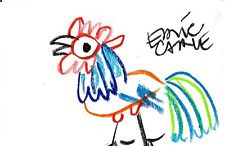 Yesterday, the
Yesterday, the 
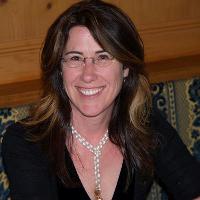

 At the School Library Journal Day of Dialog on Wednesday, May 27, held at New York City's Fashion Institute of Technology, Caldecott Medalist Brian Selznick delivered the opening keynote.
At the School Library Journal Day of Dialog on Wednesday, May 27, held at New York City's Fashion Institute of Technology, Caldecott Medalist Brian Selznick delivered the opening keynote.

 Buz Teacher and Janet Bukovinsky Teacher have founded
Buz Teacher and Janet Bukovinsky Teacher have founded 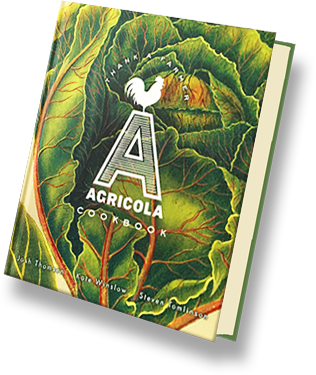 Titles for spring 2015 are Agricola Cookbook by Josh Thomsen with Kate Winslow and Steven Tomlinson, photographs by Guy Ambrosino; Mi Comida Latina, written, hand-lettered and illustrated by Marcella Kriebel; and Front of the House: Restaurant Manners, Misbehaviors & Secrets by Jeff Benjamin with Greg Jones, illustrated by Robert Neubecker.
Titles for spring 2015 are Agricola Cookbook by Josh Thomsen with Kate Winslow and Steven Tomlinson, photographs by Guy Ambrosino; Mi Comida Latina, written, hand-lettered and illustrated by Marcella Kriebel; and Front of the House: Restaurant Manners, Misbehaviors & Secrets by Jeff Benjamin with Greg Jones, illustrated by Robert Neubecker. Seattle, where Amazon's corporate headquarters is located, led the online retailer's fifth annual list of the "most well-read cities in the U.S." The ranking was determined by compiling sales data for all book, magazine and newspaper sales in both print and Kindle format from April 2014 to April 2015, on a per capita basis in cities with more than 500,000 residents. This year's top 20:
Seattle, where Amazon's corporate headquarters is located, led the online retailer's fifth annual list of the "most well-read cities in the U.S." The ranking was determined by compiling sales data for all book, magazine and newspaper sales in both print and Kindle format from April 2014 to April 2015, on a per capita basis in cities with more than 500,000 residents. This year's top 20: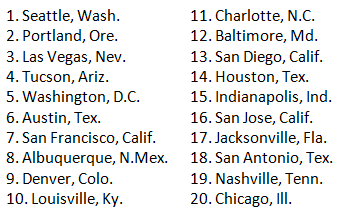
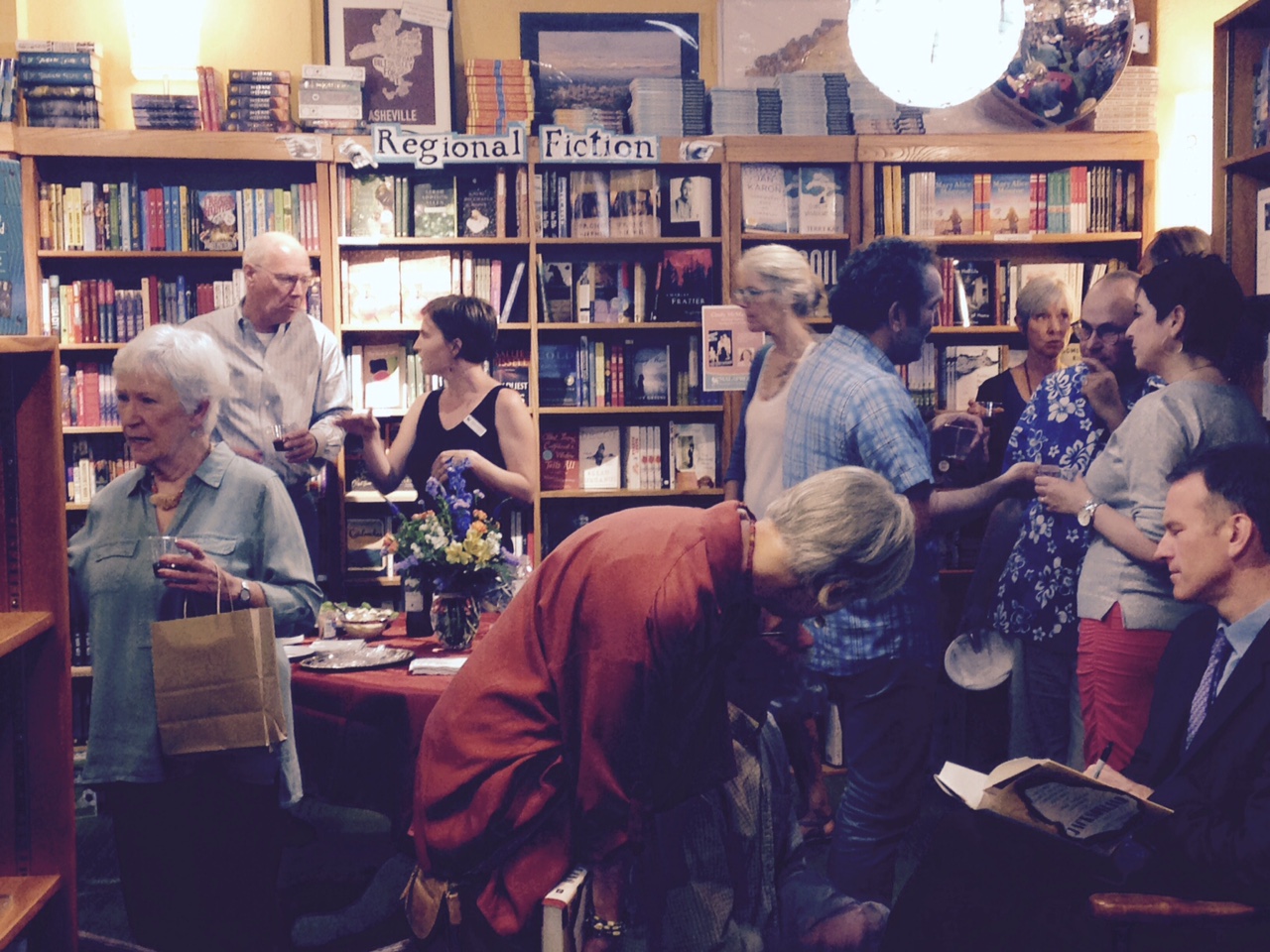
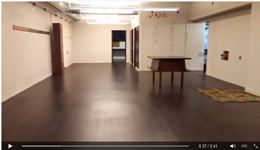
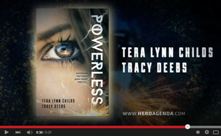 Powerless
Powerless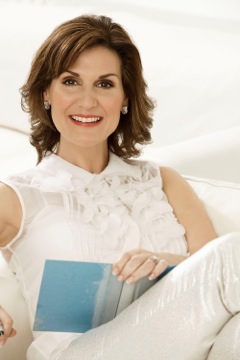
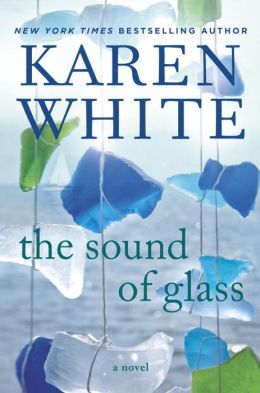 Book you're an evangelist for:
Book you're an evangelist for: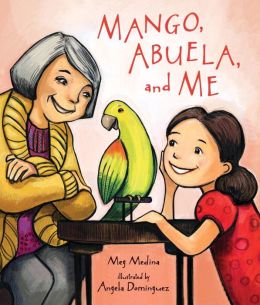 Meg Medina's (Tía Isa Wants a Car) elegantly crafted picture book traces a child's desire to communicate with her Spanish-speaking grandmother, and her perseverance to surmount their language barrier.
Meg Medina's (Tía Isa Wants a Car) elegantly crafted picture book traces a child's desire to communicate with her Spanish-speaking grandmother, and her perseverance to surmount their language barrier.